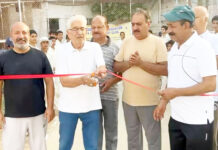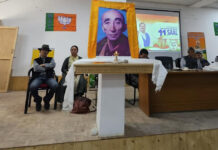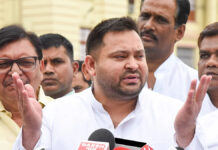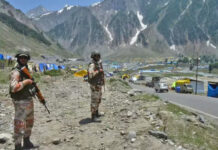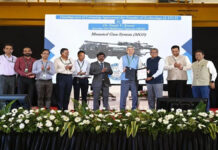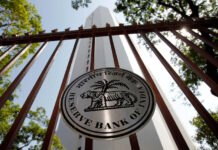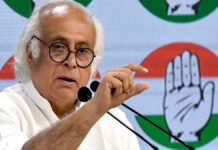New Delhi, Sept 13: India on Tuesday said that there can be no comparison between the situation in Jammu and Kashmir and that in Pakistan occupied Kashmir.
New Delhi’s comments came after UN High Commissioner for Human Rights Zeid Ra’ad Al Hussein reportedly said at the start of the 33rd session of the Human Rights Council that a team from the Geneva-based Office of the High Commission for Human Rights (OHCHR) should visit Jammu and Kashmir in the wake of large-scale violence.
Over 80 people have died in the violence following the killing of Hizbul Mujahideen terrorist Burhan Wani in July.
“We have seen the comments by the UN High Commissioner for Human Rights on the situation in the Indian state of Jammu and Kashmir,” the External Affairs Ministry said in a statement.
“We note that he has received conflicting narratives on the cause for the confrontations,” it stated.
The ministry said that the present situation in Jammu and Kashmir “arose from the death of a self-acknowledged commander of Hizbul Mujahideen, who was wanted for several acts”.
“It was further aggravated by sustained cross-border terrorism emanating from Pakistan,” the statement said.
Stating that terrorism was the grossest violation of human rights and should be so acknowledged by any impartial and objective observer, it said: “The high number of casualties sustained by Indian security forces is a reflection of the tremendous restraint they have displayed in difficult circumstances.”
Regarding the suggestion for a visit of an OHCHR team to both sides of the Line of Control, New Delhi made it clear that “we would underline that there is no comparison between the situation in the Indian state of Jammu and Kashmir and Pakistan occupied Kashmir”.
It said while Jammu and Kashmir has a democratically elected government, PoK “has seen a Pakistani diplomat arbitrarily appointed as its head”.
Earlier on Tuesday, Pakistan welcomed Al Hussein’s suggestions for OHCHR team’s visit to Jammu and Kashmir.
New Delhi, in its statement, made it clear that “the Indian state of Jammu and Kashmir is part of a pluralistic and secular democracy, where freedoms are guaranteed by an independent judiciary, an active media and a vibrant civil society”.

